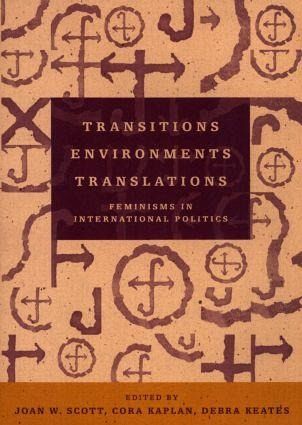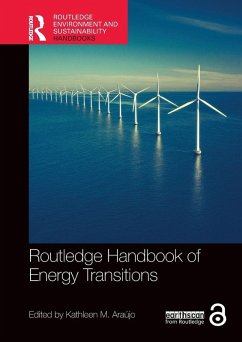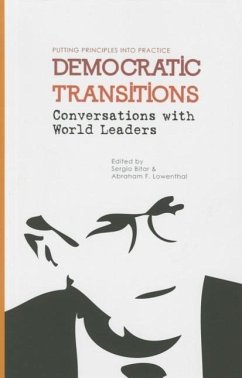
Transitions Environments Translations
Feminisms in International Politics
Herausgeber: Scott, Joan W.; Keates, Debra; Kaplan, Cora
Versandkostenfrei!
Versandfertig in 1-2 Wochen
71,99 €
inkl. MwSt.
Weitere Ausgaben:

PAYBACK Punkte
36 °P sammeln!
The essays in Transitions, Environments, Translations explore the varied meanings of feminism in different political, cultural, and historical contexts. They respond to the claim that feminism is Western in origin and universalist in theory, and to the assumption that feminist goals are self-evident and the same in all contexts. Rather than assume that there is a blueprint by which to measure the strength or success of feminism in different parts of the world, these essays consider feminism to be a site of local, national and international conflict. They ask: What is at stake in various politi...
The essays in Transitions, Environments, Translations explore the varied meanings of feminism in different political, cultural, and historical contexts. They respond to the claim that feminism is Western in origin and universalist in theory, and to the assumption that feminist goals are self-evident and the same in all contexts. Rather than assume that there is a blueprint by which to measure the strength or success of feminism in different parts of the world, these essays consider feminism to be a site of local, national and international conflict. They ask: What is at stake in various political efforts by women in different parts of the world? What meanings have women given to their efforts? What has been their relationship to feminism--as a concept and as an international movement? What happens when feminist ideas are translated from one language, one political context, to another?














